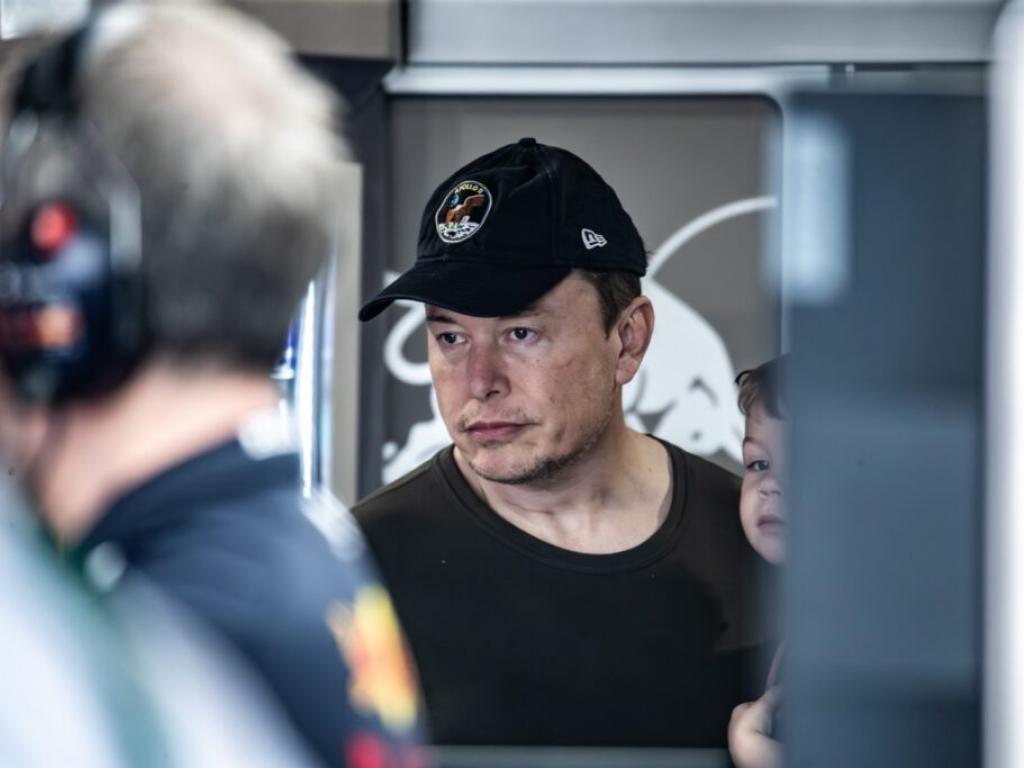Facebook Co-Founder Brings Back Old Memories As He Alleges Elon Musk's Tesla Will Be The Next 'Enron' — Here's What You Should Know About The Company That Is Etched In History Books For Corporate Fraud
Author: Navdeep Yadav | April 27, 2024 09:19am
In a digital showdown echoing past corporate scandals, Facebook co-founder Dustin Moskovitz set off a firestorm on Thursday, leveling allegations of fraudulent practices against Elon Musk’s Tesla (NASDAQ:TSLA). Comparing Tesla’s actions to the notorious downfall of Enron, Moskovitz’s remarks have reignited concerns about corporate integrity and accountability.
What Happened: Moskovitz, now CEO of software company Asana, took to Threads to voice his apprehensions, stating, "I know I sound crazy to most people who don't follow $TSLA closely but at this point it really needs to be said. This is Enron now, folks." Musk’s response? A barrage of ridicule on X (formerly Twitter), with Musk quipping, "Yeah, Dustin is the one who should go to jail for impersonating a smart person."
Amid Moskovitz’ comparison of Tesla to Enron, here’s what you should know about the commodities firm, which was repeatedly hailed as America's "most innovative" and became an enduring symbol of corporate fraud later.
See Also: ‘You’ll Be Amazed:’ Elon Musk Urges Tesla Drivers To Try Supervised Full Self-Driving Software
The Enron Saga
The Enron scandal back in 2001 was like something out of a cautionary tale, showing just how bad corporate greed and deception can get. When the U.S. energy giant went belly-up, it didn’t just go down by itself — it took down Arthur Andersen LLP, a big auditing and accounting firm, with it. With the firm’s assets totaling over $60 billion, the collapse of Enron sparked huge debates and led to changes in the law to make sure accounting standards were stronger and more honest.
The Enron Era
Enron’s story began in 1985 when it was created by the merger of Houston Natural Gas Corporation and InterNorth, Inc. Led by Kenneth Lay and Jeffrey Skilling, Enron quickly became a major player in energy derivatives trading. Skilling’s bold trading tactics, combined with the chief financial officer Andrew Fastow‘s financial savvy, helped Enron become a leader in the natural gas contracts market. Expanding into different commodities and launching Enron Online during the dot-com boom boosted the company’s value sky-high.
The Downfall Of Eron
Enron’s luck turned sour when the bull market started to fade and people started looking closer. Shareholders started pushing harder, so executives turned to shady accounting tricks like “mark-to-market accounting” and used special purpose entities (SPEs) to hide losses. Enron would value its future contracts at their estimated market value, booking anticipated profits immediately, even though those profits hadn’t been realized yet.
Despite warnings and internal voices speaking up, Enron couldn’t sustain its facade. In 2001, Securities and Exchange Commission (SEC) investigations revealed widespread fraud, sending stock prices crashing down. Efforts to save the company with buyouts failed, and Enron had to file for Chapter 11 bankruptcy protection, bringing a shameful end to its reign.
See Also: Tesla To Cut 693 Jobs In Nevada Amid Global Workforce Reduction: Government Notice
Enron's stock price peaked at over $90 per share in mid-2000. When the market closed on Nov. 30, 2001, Enron's stock price was just 26 cents.
Aftermath: Accountability And Reforms
The fallout from the Enron scandal reverberated across the corporate landscape. Top executives, including Skilling and Lay, faced indictments and convictions for conspiracy and fraud. Arthur Andersen, complicit in the cover-up, met a similar fate, losing its license and reputation. Shareholders and employees bore the brunt of financial losses, sparking a wave of civil suits. In response, regulatory reforms such as the Sarbanes-Oxley Act were enacted to bolster transparency and governance in corporate firms.
Eron Saga Now A Blur Past
While the Enron saga is now in the past, it has taught stakeholders many lessons: to remain vigilant and to demand transparency and accountability from corporate leaders.
For Moskovitz’ criticism of Tesla, the company has yet to respond to Benzinga’s request for comment.
The EV giant, led by Musk, saw its stock closing 1.11% lower at $168.28 per share on Friday, according to data from Benzinga Pro. The stock is down 32.26% year-to-date.
For the first quarter, Tesla reported revenue of $21.3 billion, down from the $23.33 billion reported a year earlier. This is the first time the company's quarterly revenue has fallen since the pandemic in 2020.
Read Next: Tesla CEO Elon Musk Takes Swipe At Waymo, Says Cybertruck Might Be Needed For Robotaxis In San Francisco
This content was partially produced with the help of Benzinga Neuro and was reviewed and published by Benzinga editors.
Image Via Shutterstock
Posted In: TSLA





